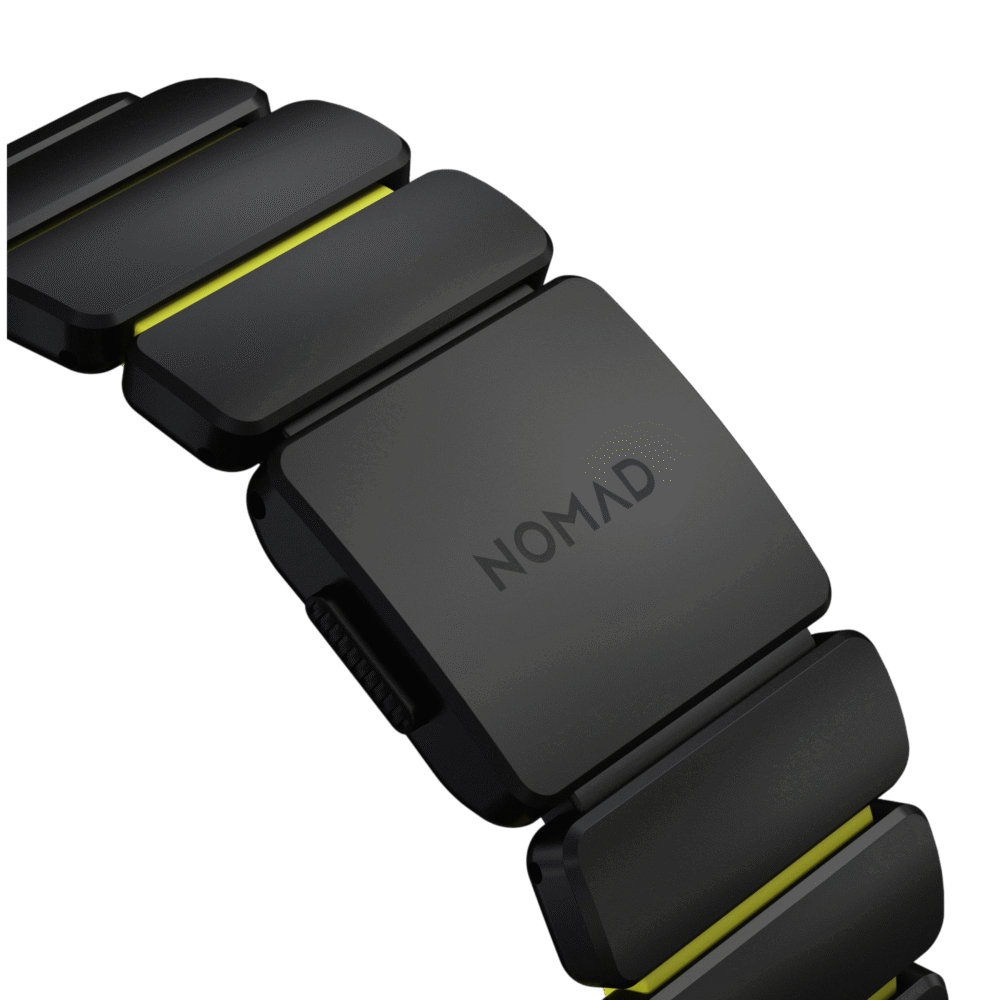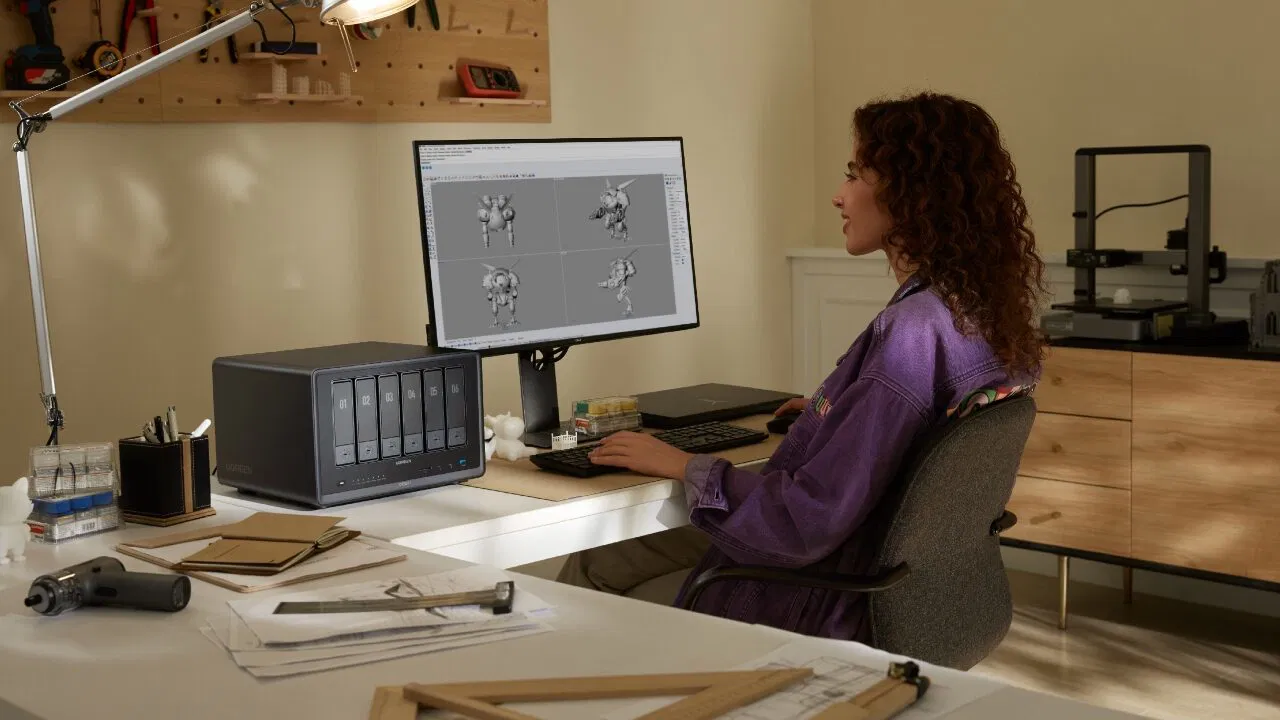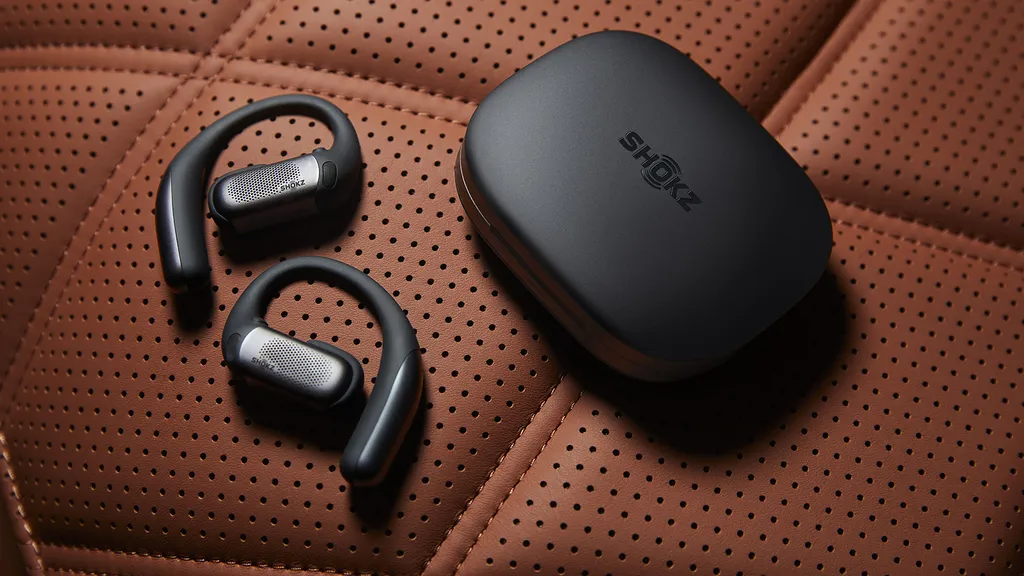TL;DR: Nomad’s Stratos Band blends titanium and FKM rubber into a perfect mix of style, durability, and comfort. It’s light, flexible, and ridiculously well-engineered — easily the best Apple Watch band Nomad’s ever made.
Nomad Stratos Band
If you’ve ever spent too long staring at your wrist wondering why a device that costs as much as a secondhand laptop still comes with a band that feels like a glorified slap bracelet, congratulations — you’re one of us. The “us” being the tribe of chronometrically obsessed Apple Watch wearers who spend more time swapping out bands than actually closing our activity rings.
When Nomad announced the Stratos Band, I felt that familiar twitch — that hopeful pulse of tech lust that whispers, maybe this one. Maybe this is the band that finally looks like it belongs on a piece of 21st-century wrist tech, not like a holdover from the era of Livestrong bracelets and brushed steel fashion watches. Titanium and FKM rubber, they said. A hybrid design. Lightweight, durable, breathable. New.
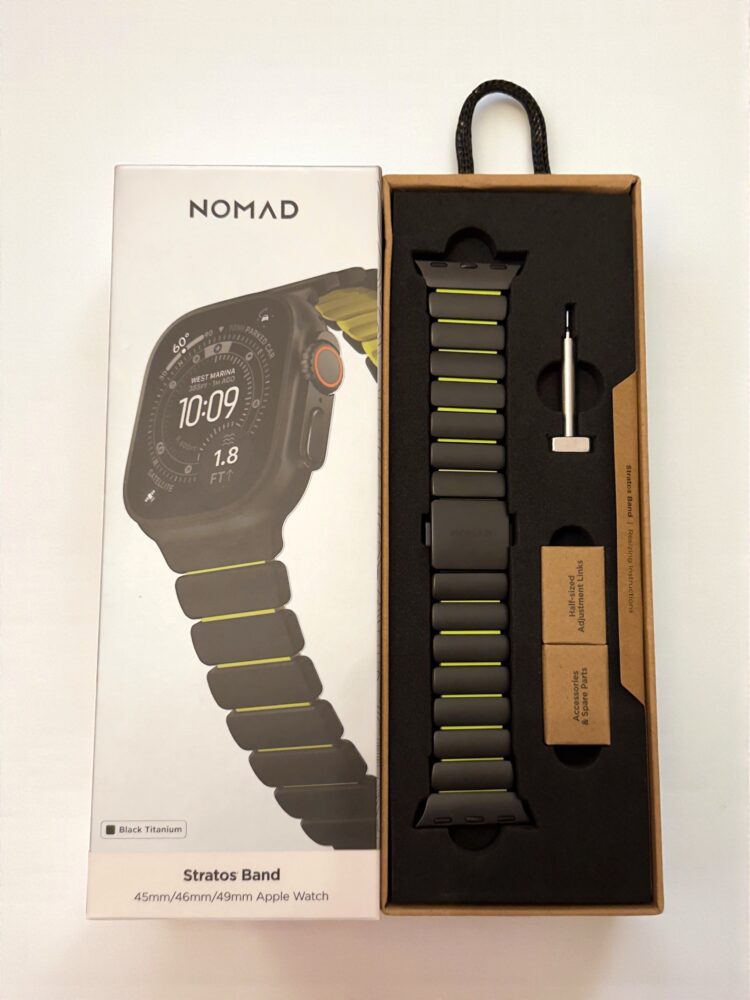
You’d think we’d seen it all by now. After all, the Apple Watch is a decade old. Bands have been made from everything from recycled ocean plastic to woven leather to literal meteorite fragments (I’m not kidding, Google it). Yet somehow, Nomad — that Californian design outfit that practically moonlights as Apple’s cool, more experimental cousin — still managed to surprise me.
Because the Stratos Band isn’t just another exercise in luxury materials. It’s a statement about how modern wearables should feel — not just how they look.
The Cult of the Apple Watch Band
Let me back up a bit. If you’ve lived in the Apple ecosystem long enough, you know that changing your watch band is basically the adult version of swapping Pokémon cards. It’s identity projection through hardware — minimal black leather says “architect,” bright orange fluoroelastomer screams “gym bro who codes,” and Milanese loop whispers “designer with opinions about fonts.”
Nomad has always played to that middle ground — the person who wants something rugged but refined, a look that says “I could go hiking or attend a startup pitch meeting, depending on the signal strength.” Their earlier bands were good. Great, even. The Titanium Link Band felt premium but a bit stiff, the Sport Band was durable but visually plain, and their Rugged Band tried to marry the two but landed in that awkward middle space where style and function were on speaking terms but not exactly dating.
Then came the Stratos.
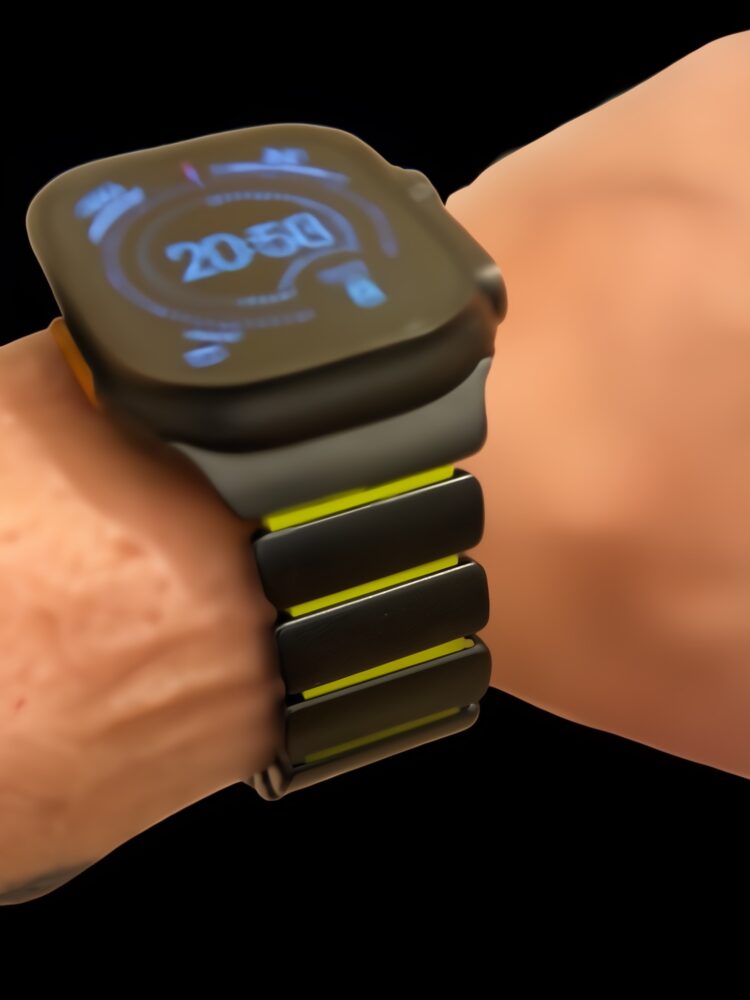
When I first unboxed it, I did what every self-respecting nerd does: I immediately smelled it. Don’t judge me. There’s something about new FKM rubber — that faintly synthetic, high-end scent — that just screams precision engineering.The titanium links caught the light like they’d been sandblasted by angels, matte and understated, perfectly matching the Apple Watch Ultra I wear more like a fashion statement than a dive instrument.
And that first snap — the magnetic clasp clicking into place — was almost erotic.
Design: The Future of Hybrid Aesthetics
Here’s where Nomad’s designers deserve credit. They didn’t just take a metal link bracelet and slap in some rubber bits for fun. The Stratos Band is a true hybrid in every sense. The titanium gives it the visual authority of a luxury timepiece, while the FKM fluoroelastomer links between each segment give it literal flexibility. It bends, it breathes, it moves with you.
From the outside, you barely see the FKM — maybe a 2mm peek between the brushed titanium segments — but it’s enough to hint that something’s different here. Think of it like a cyberpunk muscle suit for your wrist. Functional, but with just enough flair to make it feel rebellious.
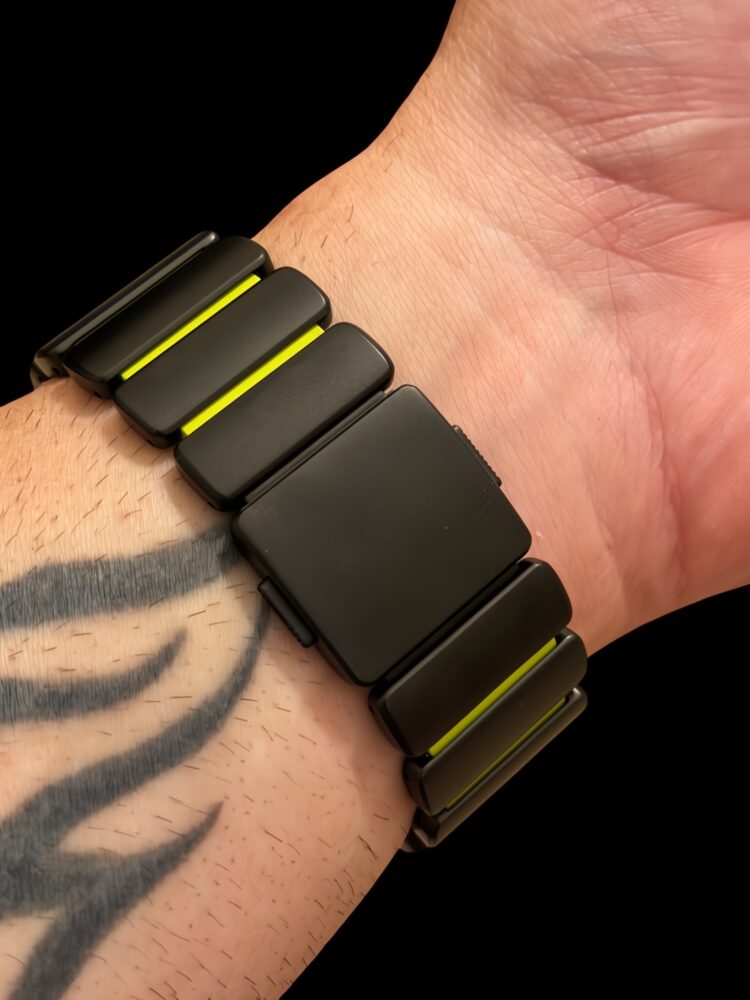
Mine’s the black titanium with Ultra Orange FKM, and it looks like Tony Stark designed it in his Malibu lab. The orange accents peek out like a pulse of energy, subtle but striking. I could wear this to a formal dinner and still feel like I’m hiding a bit of sci-fi rebellion under my sleeve.
The clasp deserves its own paragraph. Hell, it deserves a small altar. Nomad has refined the flush-fit magnetic clasp to near perfection. Most metal bands have clasps that jut out like a cheap belt buckle — not this one. It aligns magnetically, closes with a whisper, and lies perfectly flat against the wrist. You can literally open and close it with one hand, which makes me feel far more competent than I actually am.
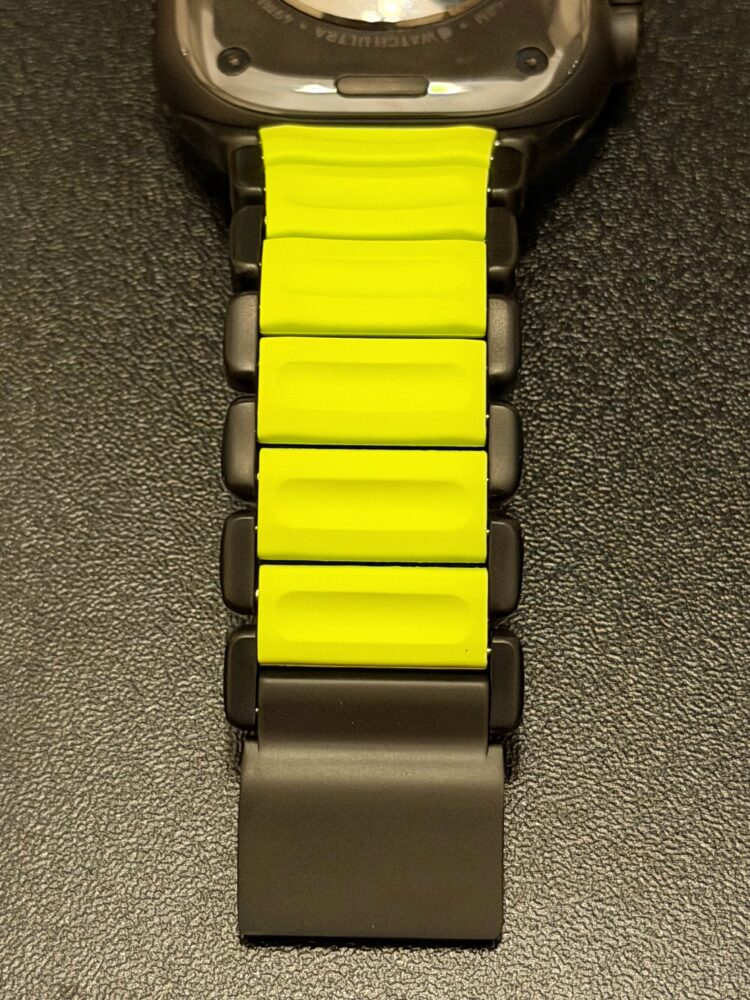
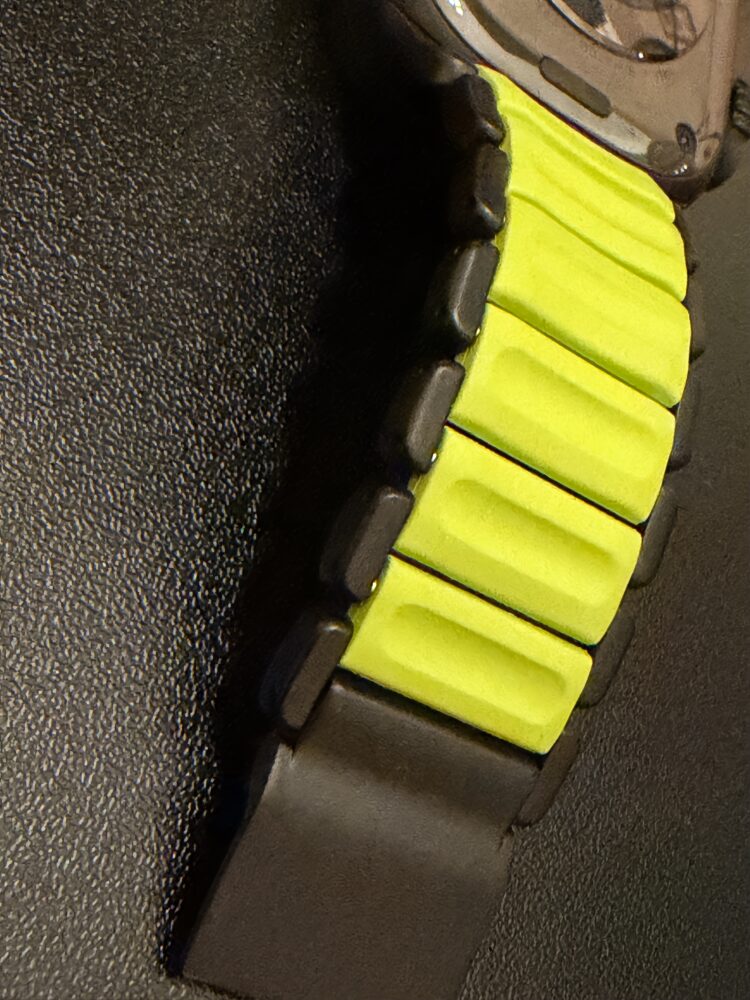
It’s also comfortable. Like, unreasonably so. And that’s not something I say lightly after years of wrist irritation and the occasional hair-yanking incident from cheaper link bands. The concave channels on the underside of the FKM make the Stratos feel like a soft exoskeleton — supportive but breathable. Even after a full day of typing, walking, sweating, and existential scrolling through social media, my wrist felt fresh.
Titanium: The Material That Makes You Forget Gravity
I’ve worn plenty of steel link bands in my time, and they all share one fatal flaw: weight. No matter how good they look, you eventually feel them dragging down on your wrist like a stubborn toddler. Titanium changes that. It’s one of those materials that makes you question physics.
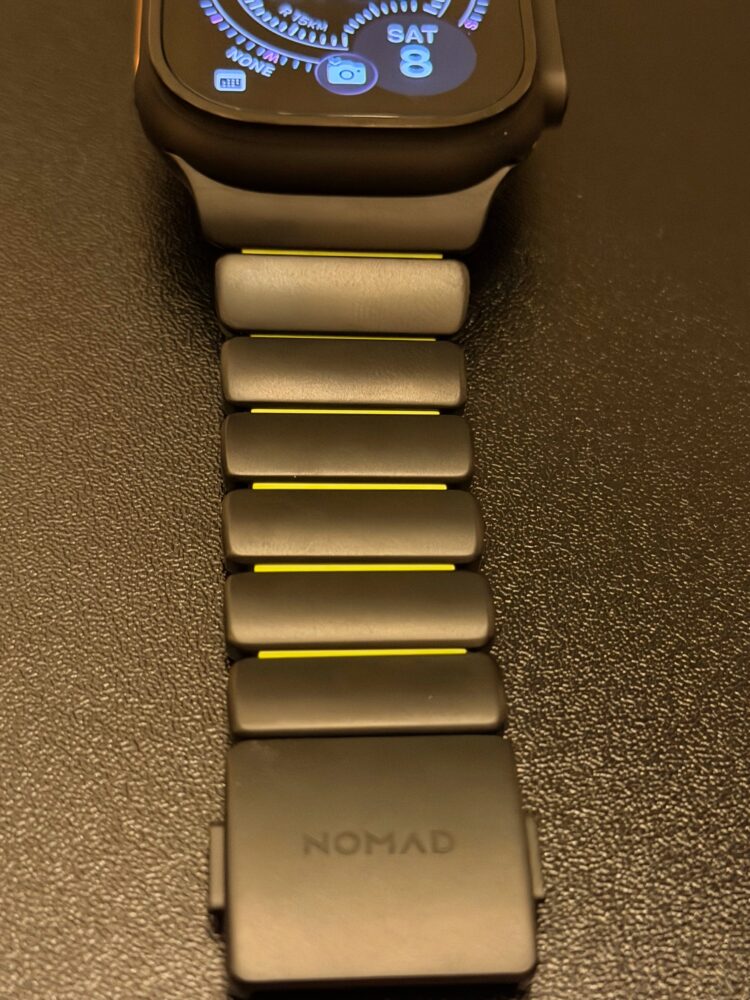

Nomad’s titanium feels solid but never heavy. It has that uncanny sense of presence without mass — like it’s there to reassure you but never intrude. If steel bands are armor, titanium is a second skin.
And paired with FKM, it becomes almost absurdly comfortable. During workouts, it flexes naturally; during long desk sessions, it doesn’t cut circulation; during showers (yes, I tested this for science), it dries fast and doesn’t trap moisture. It’s as if Nomad figured out that the best luxury isn’t opulence — it’s absence of annoyance.
Wrist Behavior and Everyday Wear
Here’s where things get personal. I’ve been wearing the Apple Watch Ultra daily since launch, and I love it, but the band hunt has been endless. Leather looks great until sweat turns it into sadness. Metal looks classy until you realize your wrist feels like it’s been through a CrossFit session. Rubber is fine for running, but not for dinner.
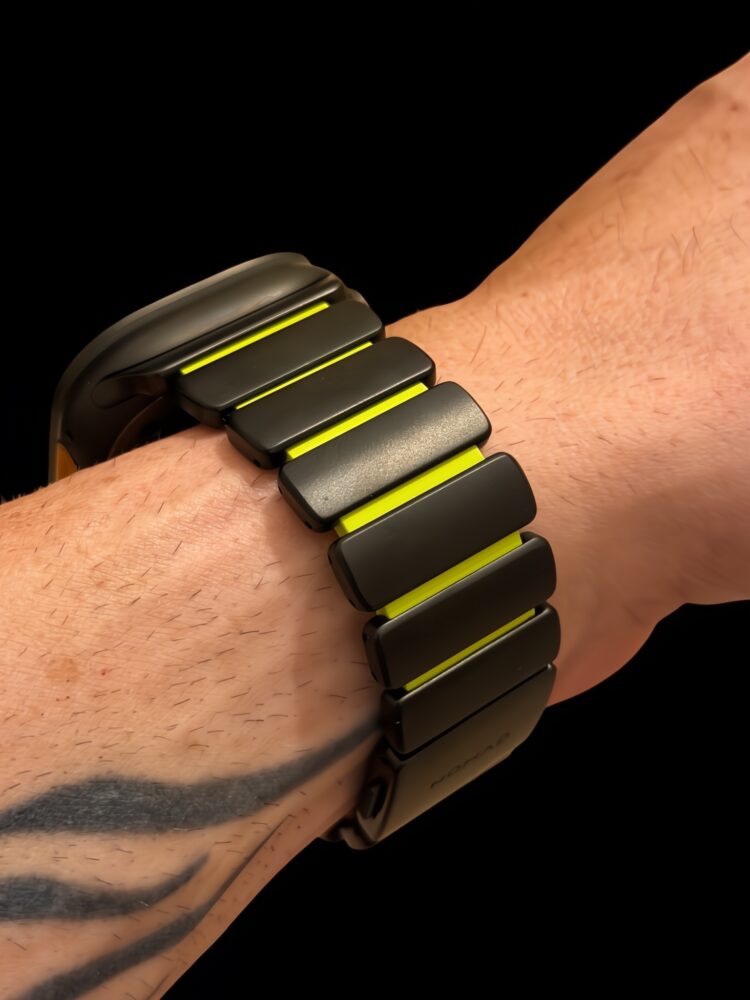
The Stratos Band hits a sweet spot I didn’t think existed. I wore it hiking one weekend, then to a semi-formal event that same evening, and it didn’t feel out of place in either setting. That’s rare.
And then there’s the adjustability. Nomad includes a small link removal tool in the box — a delightful nod to the watch nerds among us. The spring-loaded pins make resizing painless, almost meditative. Click, twist, detach. Done. The inclusion of half-sized links is pure genius; it lets you dial in a fit that’s snug without cutting off blood flow, something Apple’s own metal bands bizarrely still fail at.
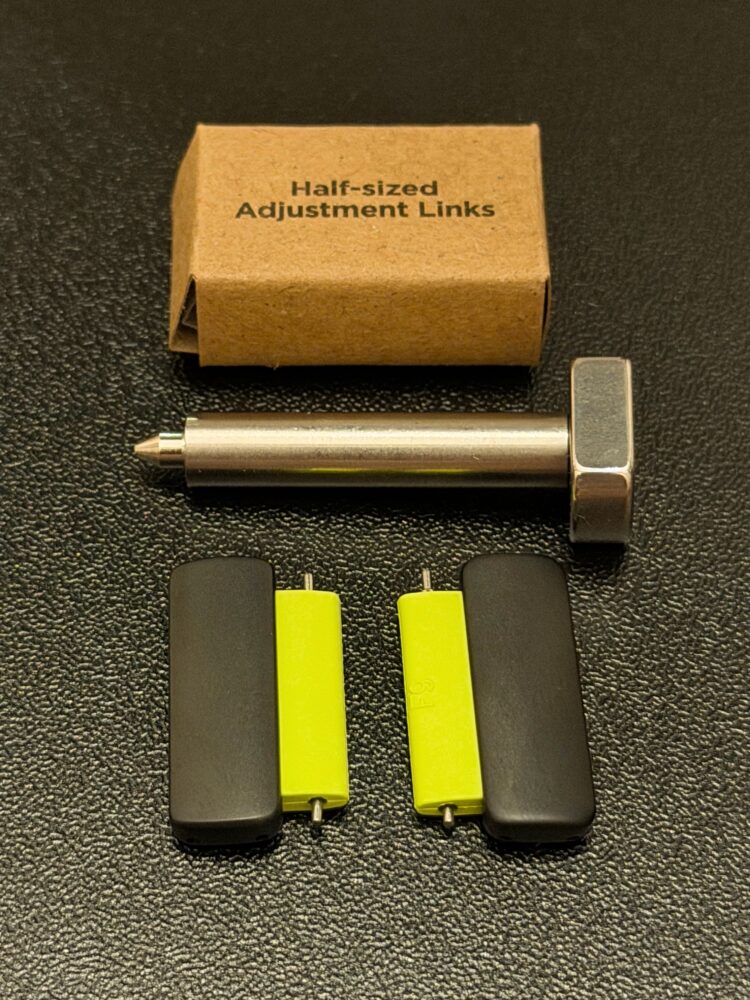
After a few weeks, I realized something: I’d stopped noticing the band altogether. It just was. No irritation, no slipping, no second thoughts. That kind of design disappears into your life — and that’s the mark of real engineering maturity.
Style and Subtle Flexes
The Stratos doesn’t shout. It doesn’t sparkle like stainless steel or glint like chrome. Instead, it whispers confidence. It’s matte, minimal, industrial-chic — like something you’d see on a character in Blade Runner 2049. It’s the kind of design that makes people ask, “Wait, is that an Apple Watch?”
My only real gripe mirrors Andrew O’Hara’s original: I wish there were a polished titanium version. The matte finish is great for the Apple Watch Ultra, but it lacks the old-school luxury sheen of classic titanium. Maybe Nomad will get there. I hope they do. A polished Stratos would absolutely wreck my wallet.
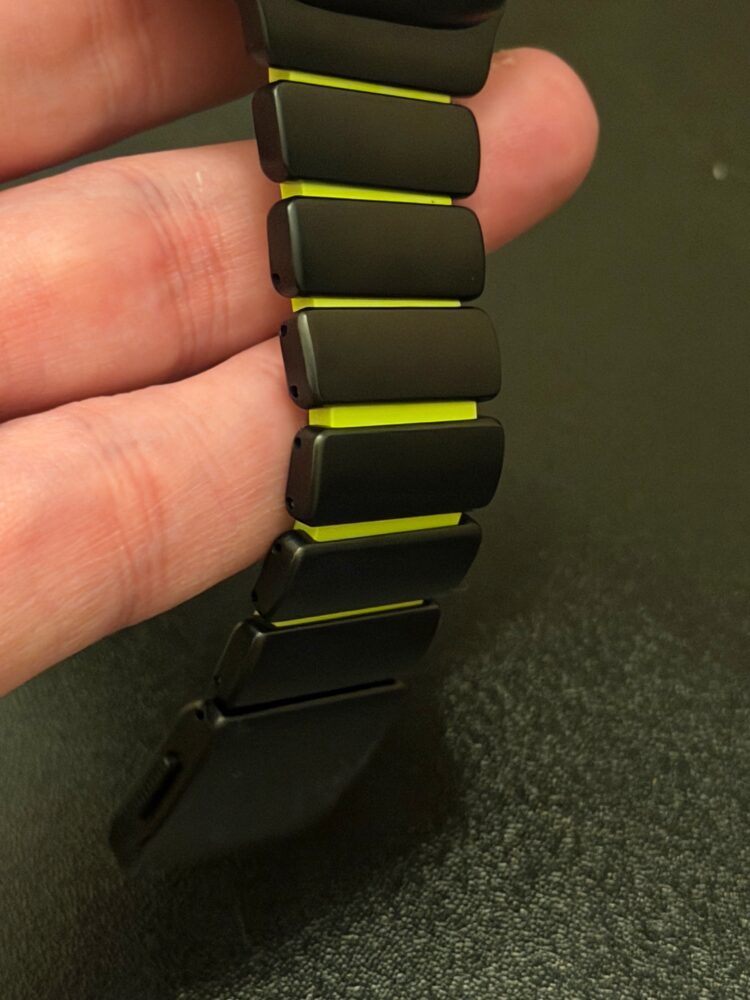
Verdict: The Band That Finally Gets It
I’ve tried dozens of Apple Watch bands over the years — some brilliant, some forgettable, some that felt like medieval torture devices disguised as accessories. The Nomad Stratos Band is the first in a long time that actually made me rethink what an Apple Watch could feel like. It’s elegant without being flashy, rugged without being overbuilt, and comfortable enough to disappear into daily life.
Sure, AED 689 ($179) isn’t cheap. But here’s the thing: once you wear this, you realize most bands aren’t really worth their price tags — this one is.


